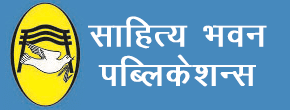Public Finance book has been published strictly according to the syllabus of B.Com. Semester III of Lucknow University, Lucknow.
- Public Finance, state Richard Musgrave and Peggy Musgrave, “in both theory and practice, do not stand still.” Developments in both theory and fiscal institutions take place and this process is a continuing one. As such, we felt the need to revise our present book.
- In the first chapter, we have tried to briefly add the contours of new public finance to which a large number of eminent economics have contributed, including the Nobel laureates in economics.
- As in the earlier edition, due care has been taken in this edition too to discuss and analyze various topics in a way that is intelligible to bachelor students who study public finance.
- Objective questions with answers have been provided at the end of each chapter.
Public Finance Syllabus For B.Com Semester III of Lucknow University
UNIT-I: Introduction: Meaning & Scope of Public Finance; Public goods vs. Private goods; Principle of Maximum Social Advantage; Public Budget, Techniques of Budgeting (ZBB, PBB).
UNIT-II: Public Expenditure: Meaning & Nature, Wagner’s views on increasing state activities Wiseman-peacock hypothesis, Canons and classification of public expenditure; effects on production, distribution, and economic stability.
UNIT-III: Public Revenue: Main sources of revenue, Tax revenue, Direct and Indirect Taxes, Progressive, proportional & Regressive Taxes, Value added tax and GST. The Division of the tax burden – Impact and Incidence of a tax, effects on production & distribution. Public Debt: Role and classification of Public debt and methods of their redemption. Deficit Financing.
UNIT-IV: Indian Public Finance: Different type of Budgetary Deficits; Financial Federalism under the constitution, Finance Commission – meaning and current Finance Commission, Budgetary Procedure and Financial Control in India. Fiscal Consolidation and FRBM Act
Public Finance Book Contents
- Meaning and Scope of Public Finance
- Public Goods Vs. Private Goods
- Principle of Maximum Social Advantage
- Public Budget, Techniques of Budgeting (ZBB, PBB)
- Public Expenditure (Meaning, Nature, and Causes of Increase)
- Canons and Classification of Public Expenditure
- Effects on Production, Distribution and Economic Stability
- Sources of Public Revenue
- Classification of Tax Revenue: Direct and Indirect Taxes
- Progressive, Proportional and Regressive Taxes
- Value Added Tax (VAT)
- Goods and Service Tax – GST
- The Division of Tax Burden
- Shifting and Incidence of Taxation
- Shifting and Incidence of Commodity Taxes
- Effects of Tax on Production and Distribution
- Public Debt: General Consideration
- Methods of Redemption of Public Debt
- Deficit Financing
- Budget Deficit
- Indian Federal Finance under the Constitution
- Indian Finance Commission
- Budgetary Procedure and Financial Control In India
- Fiscal Consolidation and Fiscal Responsibility and Budget Management Act, 2003 (FRBMA)













![Specialised Accounting [for Aligarh Muslim University]](https://i0.wp.com/sahityabhawanpublications.com/wp-content/uploads/2017/10/2819-Specialised-Accounting.jpg?resize=245%2C300&ssl=1)
![निगमित अधिनियम (Corporate Laws) [for Chaudhary Charan Singh University]](https://i0.wp.com/sahityabhawanpublications.com/wp-content/uploads/2017/10/2475-Corporate-laws.jpg?resize=245%2C300&ssl=1)


![Specialised Accounting [for B. R. Ambedkar University, Muzaffarpur]](https://i0.wp.com/sahityabhawanpublications.com/wp-content/uploads/2017/10/2743-Specialised-Accounting.jpg?resize=245%2C300&ssl=1)

![व्यावसायिक नियमन रूपरेखा (Business Regulatory Framework) [for L.N. Mithila University]](https://i0.wp.com/sahityabhawanpublications.com/wp-content/uploads/2017/10/2632-Business-Regulatory-Framework.jpg?resize=245%2C300&ssl=1)
Reviews
There are no reviews yet.